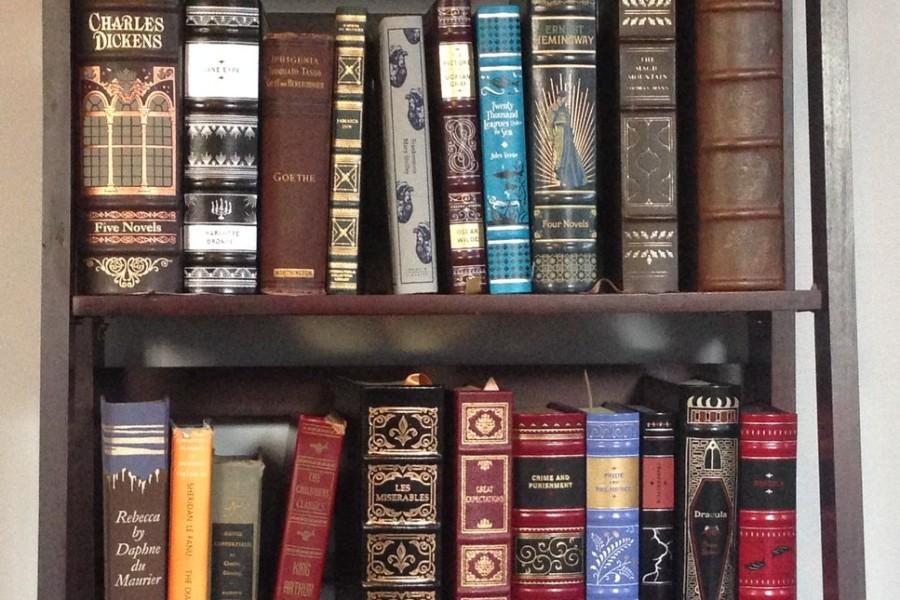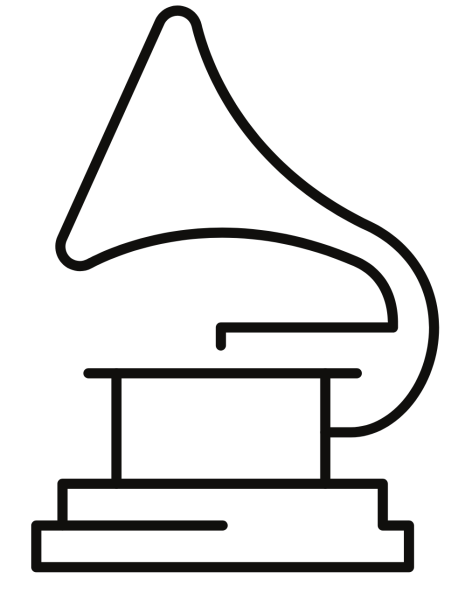On the importance of classic novels
Photo: Courtney Harshbarger
Senior Courtney Harshbarger’s collection of classic novels. Harshbarger has read a new classic book each week this year.
Many people ignore classic novels because they do not want to exert too much energy actually thinking about a text when they could be texting instead. I agree that I would much rather spend my time on Tumblr than read through yet another tedious Shakespeare play, but there are many classics that are worth the read.
The definition of a “classic novel” has been disputed for ages. No one is completely sure as to what the exact requirements are for dubbing a book a “classic,” but they do have much more substance than the 140 character limit on Twitter. The most widely accepted description of a classic novel is a book that has survived throughout time and somehow still manages to have a message relevant to the current time period.
With this definition in mind, the reason for reading classic novels becomes clearer. I will admit that some classics are dull, but history classes do not ignore the people who did bad things, so not all bad classics should be ignored. Refusing to acknowledge the changes made by bad people (or in this case, bad books) would create a huge gap in the knowledge of how literature became what it is today. Despite my intense hatred for “One Hundred Years of Solitude,” I do grudgingly admit that there are some merits to the magic realism and strange writing style present in the novel.
All classics, even the dull ones, have somehow helped shape the literary world, and are noteworthy in their contributions to formal writing. Unfortunately, students always seem to be forced into reading the worst possible books somehow. Luckily, there are many classic novels that not only contribute to worldwide literature, but also have a good storyline and writing technique. These can be read not necessarily for learning purposes, but simply for the excellent reading experience.
Many of my favorite classics do not have airtight, or even very interesting stories, yet I enjoy them for the beauty of the writing. “Dracula” is filled with plot holes and incongruencies, but it has become one of my favorite books solely because of the the way the writing makes me feel.
Modern books tend to be written in a colloquial way that weakens the art of writing and puts all emphasis on the storyline. I do not necessarily consider modern “writers” to be writers so much as storytellers. When I read modern books, I often feel like I am reading a movie script rather than a novel. The sentence structure and dialogue tends to be extremely simple, and it takes away my favorite part of reading, which is appreciation for the writing itself.
Classics are more concerned with tiny details and philosophical thoughts and questions that sometimes take me by surprise. I love the way classics make me question my own ideas and opinions, allow me to appreciate the beautiful writing and simultaneously provide me with a story.
Reading modern books and classic books are two completely separate pursuits, and I find that classic are more intellectually stimulating and awe-inspiring. I commend those who find enjoyment in modern books, but I encourage everyone to try reading at least one good classic because it can be an amazing experience.
I have recently set out to read one classic novel each week. I will subsequently review a few of these classics, and you can follow my journey through literature on gryphonlodge.com.









